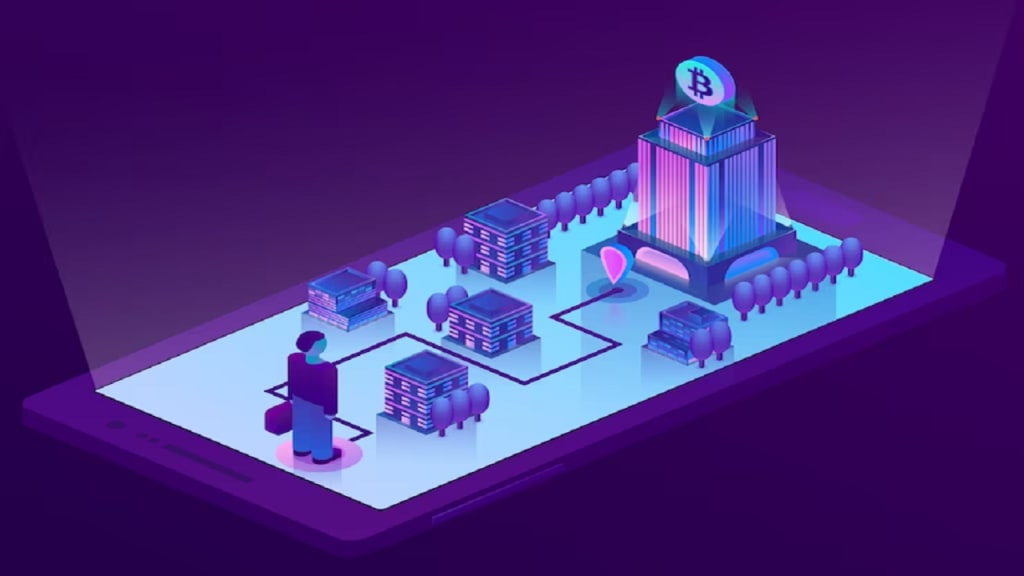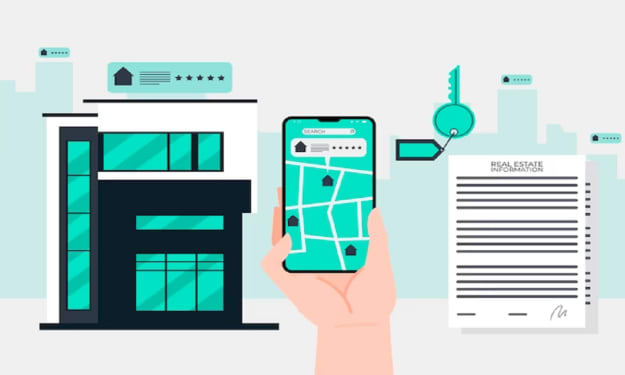
Blockchain technology has gotten a lot of interest in recent years because of its potential to revolutionise existing systems and processes. Real estate is one industry that can tremendously benefit from blockchain integration. Real estate transactions are frequently complex, including several parties and middlemen, which creates problems such as inefficiency, lack of transparency, and fraud concerns.
This article investigates how blockchain technology can address these issues and provides an outline of how blockchain can be used into real estate app development.
Enhanced Transparency and Security:
Blockchain technology offers enhanced transparency and security by providing a decentralized and immutable ledger that records all transactions.
In the context of real estate, this means that every transaction, including property ownership, transfers, and contracts, can be stored on the blockchain, making it easily accessible to all relevant parties. The transparency eliminates the need for intermediaries, reduces the risk of fraud, and enhances trust among participants.
Smart contracts, which are self-executing agreements coded on the blockchain, can further streamline real estate transactions. These contracts automatically enforce predetermined conditions, ensuring that parties fulfill their obligations. For instance, a smart contract could facilitate the automatic transfer of funds to the seller once the buyer completes the payment, eliminating the need for escrow services.
Improved Efficiency and Cost Reduction:
Blockchain integration in real estate app development can streamline processes and reduce inefficiencies, leading to improved efficiency and cost reduction.
With blockchain, property data and records can be digitized, securely stored, and easily accessed by authorized parties. This eliminates the need for manual paperwork, reduces the time required for due diligence, and minimizes the chances of errors.
Additionally, blockchain can enable the tokenization of real estate assets, breaking them down into digital tokens representing fractional ownership. This fractional ownership model opens up new opportunities for liquidity and investment, allowing individuals to invest in real estate assets without the need for substantial capital. It also facilitates fractional trading of properties, making it easier to buy and sell shares of real estate, thereby increasing market liquidity.
Streamlined Property Title Management:
One of the significant challenges in real estate transactions is the management of property titles. Blockchain technology can revolutionize this process by providing a secure and transparent system for recording and verifying property ownership. By storing property titles on the blockchain, potential buyers can easily verify the authenticity and history of the property, reducing the risk of fraudulent transactions.
Blockchain-based title management can also simplify the process of transferring property ownership. Instead of relying on manual paperwork and multiple intermediaries, a blockchain-based system can facilitate the transfer of ownership through digital tokens. The transfer can be recorded on the blockchain, ensuring transparency and reducing the time and costs associated with traditional methods.
Enhanced Real Estate Marketplaces:
Real estate marketplaces can benefit from blockchain integration by offering increased security, transparency, and efficiency. Blockchain can enable secure and verified identity management, reducing the risk of identity theft and fraudulent listings. It can also provide a transparent record of property history, including past transactions, ownership transfers, and maintenance records, helping buyers make more informed decisions.
Furthermore, blockchain-based marketplaces can automate property verification processes, ensuring that listings meet specific criteria before being published. This automation eliminates the need for manual verification, reduces the chances of false or misleading information, and improves the overall quality of listings.
Conclusion:
The integration of blockchain technology in real estate app development holds immense potential for transforming the industry. By providing enhanced transparency, security, efficiency, and cost reduction, blockchain can revolutionize the way real estate transactions are conducted. From streamlined property title management to improved real estate marketplaces, the application of blockchain in real estate offers numerous benefits for all stakeholders involved. As blockchain technology continues to evolve, its implementation in real estate
About the Creator
Bhavika
Bhavika is the SEO Executive.






Comments
There are no comments for this story
Be the first to respond and start the conversation.